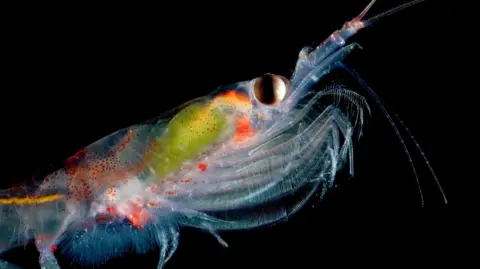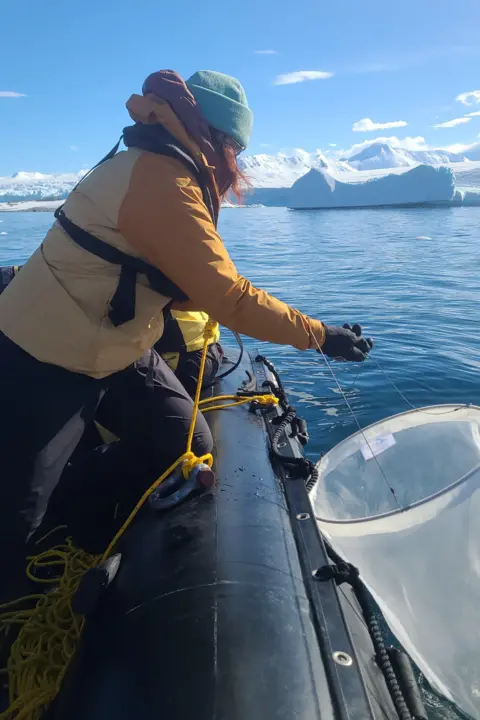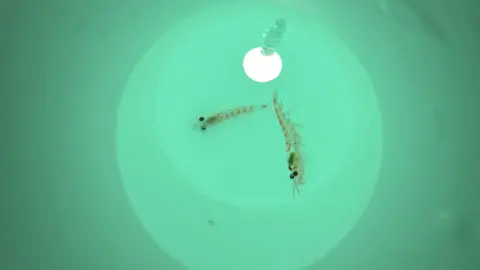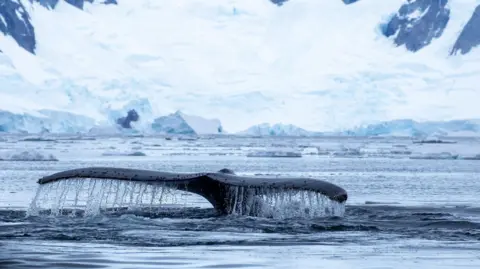Science correspondent, BBC News
 WWF
WWFScientists say subtle differences in the colour of seawater will enable them to count tiny – but critically important – Antarctic marine creatures from Space.
The target of the new research effort is Antarctic krill, which are just a couple of inches long and one of the most abundant and important animals on the planet.
Marine wildlife – including whales, penguins, seals and seabirds – all feed on these diminutive creatures.
However, conservation scientists are concerned that fishing and climate change could be having a negative impact on them and say we need new ways to monitor the creatures.
 WWF
WWF“Antarctic krill are the superheroes of the Southern Ocean,” said Rod Downie, chief polar adviser at the wildlife charity WWF-UK.
“They are tiny, unsung heroes that sustain incredible marine life, but climate change and unsustainable fishing are putting them at risk.”
Researchers from the University of Strathclyde, WWF and the British Antarctic Survey (BAS) are developing a new way to use satellites to work out how many krill are in the ocean around Antarctica.
 WWF
WWFThe key is in subtle differences in how much light seawater absorbs – depending on how many krill are swimming in it.
Dr Cait McCarry, from the University of Strathclyde, has just returned from a trip to Antarctica, where she caught krill in order to measure this effect.
“We start with seawater, then we add in a krill and take a measurement [of how much light the water absorbs],” she explained. “Then we add another krill and take another measurement.”
This analysis of exactly how the density of krill alters the colour of the ocean will, researchers say, allow them to take snapshots of the krill population from satellites – monitoring the population from Space.
 Victoria Gill/BBC
Victoria Gill/BBCKrill are food for some of the largest animals on the planet – including giant whales that migrate thousands of kilometres, to Antarctica, to feed on them.
They are also the foundation of a healthy ocean – part of a virtuous cycle: Whales eat krill, krill eat microscopic plants that live in sea ice, and those plants absorb planet-warming carbon as they grow. When whales poop (in vast quantities), that fertilises the planet-cooling marine plants.
However, as the ocean temperatures rise with global warming, conservation scientists are concerned that this cycle could be disrupted, and that krill could be vulnerable.
Mr Downie said: “We urgently need to better manage the fishery and protect krill habitats within a network of marine protected areas.
“[This project could] give us a new tool to help monitor and safeguard this vital species.”



